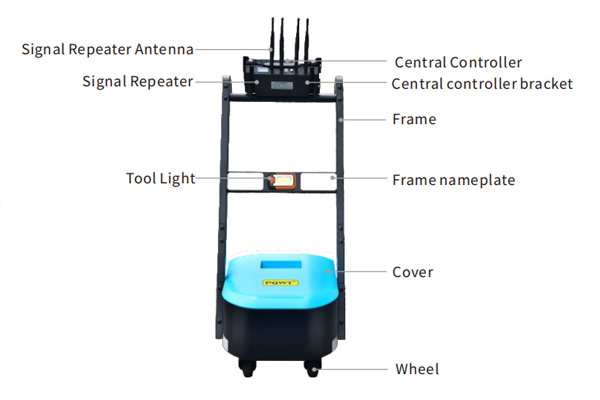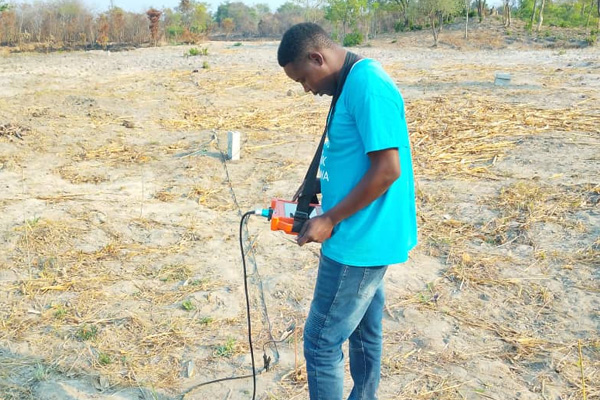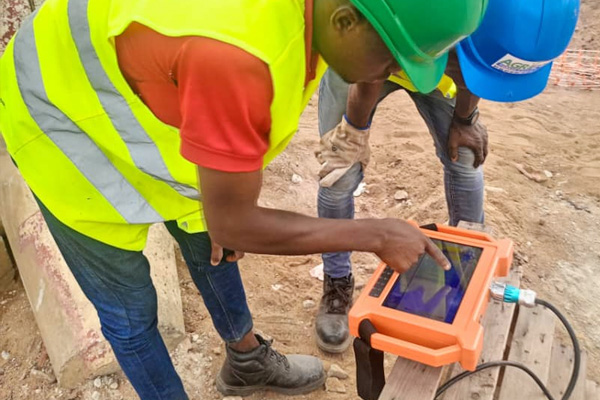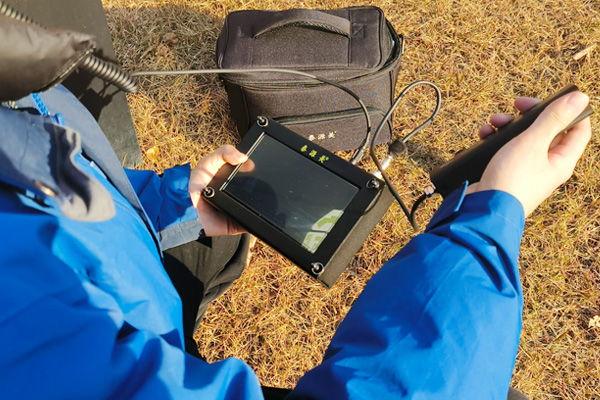In the field of groundwater exploration, accurately locating water sources has always been an important and challenging task. Traditional exploration methods often require a lot of labor, material and time. The emergence of PQWT ground water detector provides an efficient and accurate method for groundwater source detection. This device utilizes a natural electric field as the working field source, and realizes the accurate detection of groundwater sources by measuring the difference in resistivity of underground rocks and ores or groundwater.
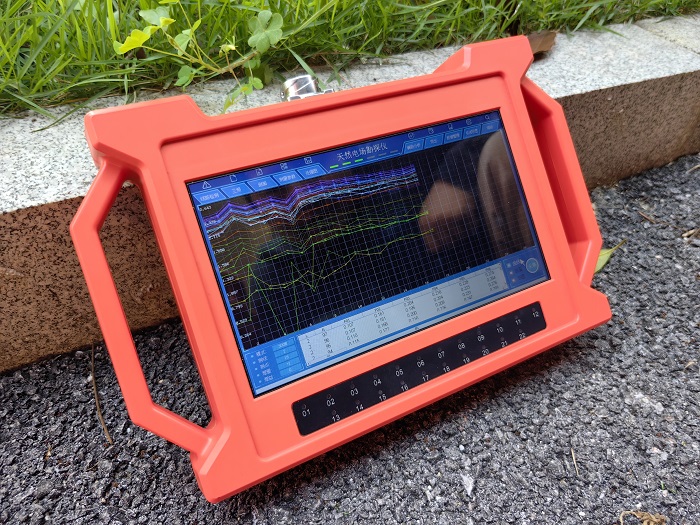
Working principle of PQWT ground water detector
The core operating principle of the PQWT ground water detector is based on the difference in resistivity between underground rock and water. Specifically, underground rocks and water bodies have different resistivities in the natural electric field, and when underground water flows in the stratum, it exchanges charges with different rock layers, forming weak underground electric field signals.PQWT ground water detector studies the anomalous changes in different geological bodies by measuring the different frequency components of the electric field signals on the ground and analyzing the pattern of change. The PQWT ground water detector measures the different frequency components of these electric field signals on the ground and analyzes the pattern of change to study the anomalous changes produced by different geological bodies.
This electrical exploration method is able to collect N electric field components of different frequencies on the surface, and these data reflect the resistivity changes at different depths and locations in the subsurface. By analyzing these data, researchers can deduce the distribution range, flow direction and water quality of groundwater.
Technical Advantages
1. High efficiency: PQWT ground water detector can quickly measure and analyze the underground electric field signal, which greatly shortens the time of ground water source detection.
2. Accuracy: Through detailed analysis of multi-frequency electric field signals, PQWT ground water detector is able to accurately locate the position and depth of underground water sources.
3. Non-invasive: Unlike traditional drilling methods, the PQWT ground water detector does not require large-scale destructive work on the ground surface, which reduces the impact on the environment.
4. Multifunctionality: In addition to detecting underground water sources, PQWT ground water detector can also be used to study the resistivity difference of other geological bodies, which is widely used in the fields of mineral exploration and geological survey.
Application Scenarios
PQWT ground water detector is suitable for a variety of groundwater detection and geological exploration tasks, the following are some typical application scenarios:
1. Agricultural irrigation: In agricultural production, especially in arid areas, accurately locating groundwater sources is crucial for irrigation, and the PQWT ground water detector can help farmers quickly find suitable water sources for mining.
2. Urban water supply: With the increasing demand for urban water supply, groundwater sources have become an important supplement. With PQWT ground water detector, you can effectively detect and manage urban groundwater resources.
3. Geological survey: In geological survey, PQWT ground water detector can provide detailed information on the distribution of underground resistivity, which helps researchers to understand the underground structure and composition.
4. Mineral exploration: By measuring the difference in resistivity of different ore bodies, PQWT ground water detector can assist in the exploration of mineral resources and provide reference data on the distribution of ore bodies.
Conclusion
The emergence of PQWT ground water detector provides an efficient, accurate and environmentally friendly solution for underground water source detection. Its working principle is based on the analysis of the difference between the resistivity of underground rock and ore and groundwater, and it can accurately locate the position and depth of the groundwater source by measuring different frequency components of the natural electric field on the ground. This method not only improves the efficiency and accuracy of groundwater source detection, but also reduces the damage to the environment, and has a wide range of application prospects. Whether in agricultural irrigation, urban water supply, or geological survey and mineral exploration, PQWT ground water detector shows strong technical advantages and application value.
Translated with DeepL.com (free version)





